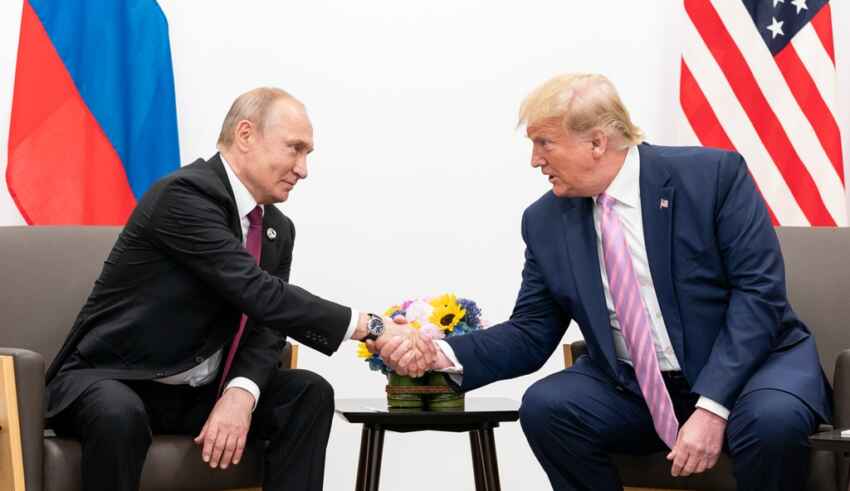
Trump took office as US President only three weeks ago and he is already shaking the world. On Wednesday 12th of February, the President announced his role as a mediator in the conflict between Russia and Ukraine, affirming his commitment to put an end to the conflict that escalated in 2022 with the Russian full-invasion of Ukraine. Trump’s decision of bilateral negotiation with Moscow has shocked the European Members, who hoped to be the only peace brokers and now fear their interests to be put aside and not considered in an eventual agreement. But why did Trump decide to exclude the EU from the peace process?
If former US President Biden affirmed that Ukraine needed to be fully involved in the negotiations and had to be treated as an equal member, allying with the EU members in this commitment, Trump seems to be on the opposite idea: his foreign policy appears to be satisfying Russian requests. Indeed, in an hour-long phone call with the Kremlin, Washington discussed the possibility of sanctions reliefs on the Russian side, of not allowing Ukraine to join NATO, and on leaving the land that Russia has seized into Putin’s hands.
European leaders have long argued that for sustainable peace both Europe and Ukraine need to be fully involved in the negotiations, affirming that first Ukraine’s independence and territorial integrity are unconditional, and second EU needs to be a broker for ensuring long-term security and being able to contain any future attempt of a Russian invasion. But with Trump taking over the mediator role and discussing direct terms with Russia, the European Union now fears also of having to pay to enforce an agreement they won’t even negotiate, through reconstruction funds for example.
The reasons behind the European Union’s exclusion from the peace process might be several. The Trump administration has emphasized an “America First” policy, focusing on direct engagement with key stakeholders. In the case of the Ukraine invasion, Trump might want to show the continuous and fundamental global role the US is still playing: by becoming the main mediator, the US is therefore ensuring its powerful position in the EU security matters. This would probably lead the European Union to depend on Trump for also mediating their interests, and the ones of Ukraine, with Russia, weakening therefore European autonomy and leadership.
Furthermore, it would increase the relationship between the US and Russia from a diplomatic point of view, but potentially also from an economic one, if the US would offer partial sanctions reliefs to induce Russia to back up from the war. But more importantly, from a strategic point of view, Trump might be determined to end the conflict to make sure to rebalance the global alliance, considering that Russia got really close to China after the Western exclusion. Through a peace agreement, and the consequential ease of sanctions, Russia would not rely exclusively on Beijing.
Trump has also reassured Russia that NATO would not be part of the deal and that Ukraine should be let enter the military organization: Putin has indeed long opposed Ukraine’s NATO aspirations, which were brought up as an excuse for the full-scale invasion. It was already clear that NATO enlargement would provoke a Russian backlash at some point in the future, as it is considered a threat to the security and the geopolitical influence that Putin has. So to guarantee full involvement and interest of Russia in the peace talks, the US President has declared to keep in the corner NATO’s members.
For sustainable peace, it’s not likely that the United States will totally exclude the European Union as a broker, and will keep Ukraine’s interest aside. Certainly, it is the first time that this war seems to be close to an end, although not the one the EU hoped for. Trump will play an essential role in the process as a mediator of Putin, but it is doubtful whether it is the sole Western key player in the negotiations.
By The European Institute for International Relations















